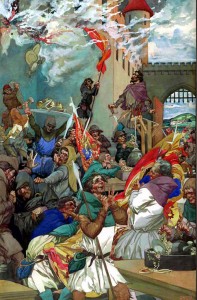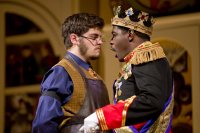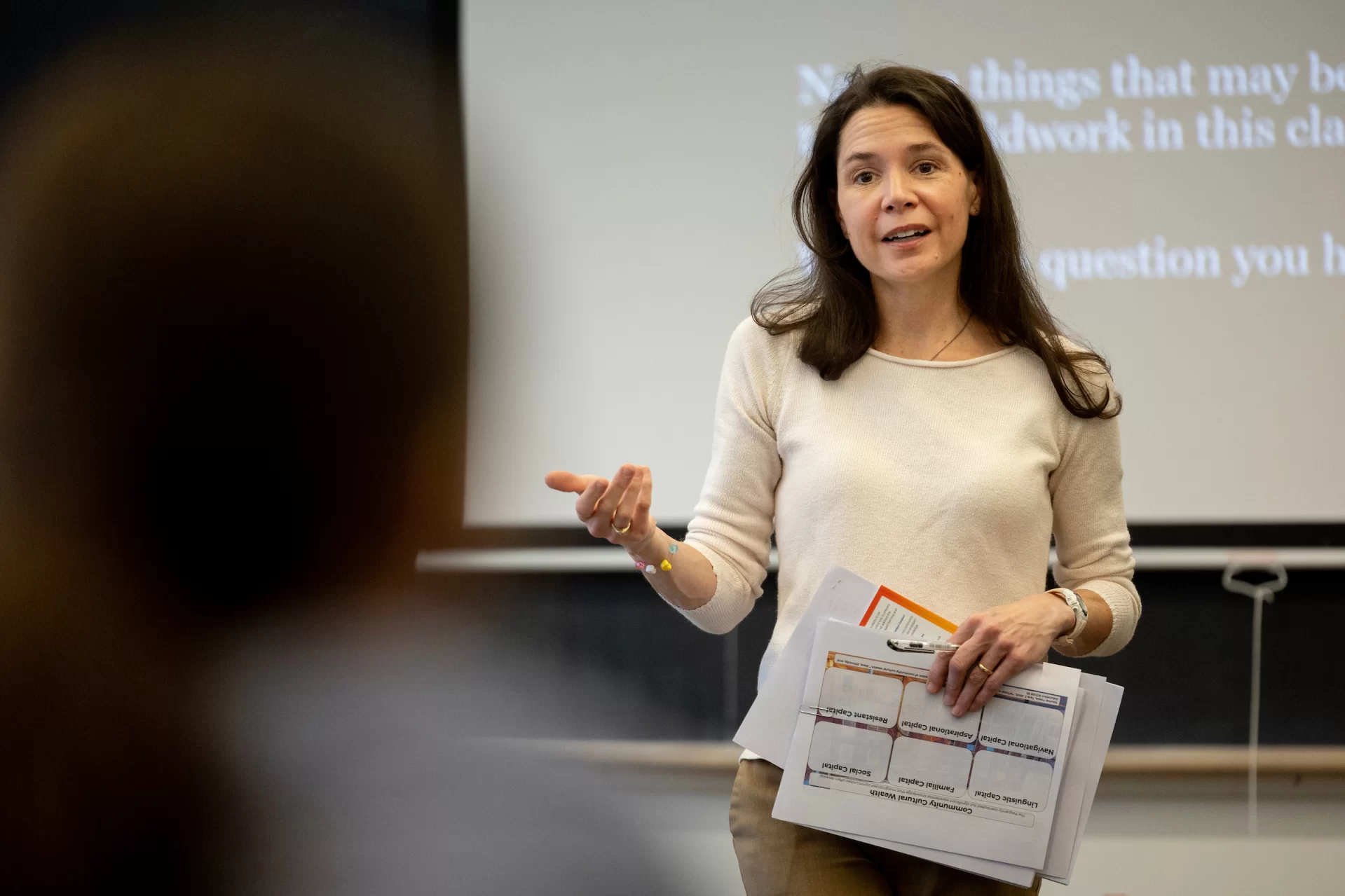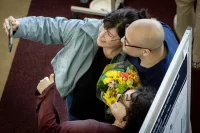
Peasants Revolt included women, too, Federico proves

This depiction by illustrator Alfred Garth Jones (1872–1955) of the Peasants Revolt features a male mob, but Associate Professor of English Sylvia Federico's research proves that women stormed the castle, too.
Until somewhat recently, writes BBC News reporter Melissa Hogenboom, “the Peasants Revolt of 1381 is largely believed to have been led by a mob of rebel men.”
But contemporary research by Sylvia Federico, associate professor of English shows that women played an important role in “orchestrating violence against the government.”
Federico first published her findings in 2001 with the scholarly article “The Imaginary Society: Women in 1381” in the Journal of British Studies. The BBC sought her out for its story on June 14, the anniversary of the day 631 years ago when rebels dragged Lord Chancellor Simon of Sudbury from the Tower of London and beheaded him.
Indeed, when it comes to the 1381 revolt (over taxes, natch), women did “almost everything” that men did, Federico tells the BBC. “They were not shy to pick up staffs, sticks, and staves and wield them against perceived oppressors.”
“Not a legitimate topic of academic inquiry.”
Federico tells the Canadian Broadcasting Company radio program As It Happens (at the 20:40 mark of Part I) that she was “initially looking at a different aspect of the revolt” but “kept seeing women’s names” as she translated medieval Latin documents at the National Archives in Kew.
At first she just made a mental note of the female presence, but soon decided that a better story was in those names. That’s the nature of research, she says. “You set out looking for something else, and you bump into [a better story] by accident.”
Federico says the medieval women were right there for any researcher to find. But women are routinely “written out to the [historical] record,” she says, especially in the field of medieval history, where historically women have not been “considered a legitimate topic of academic inquiry.”





